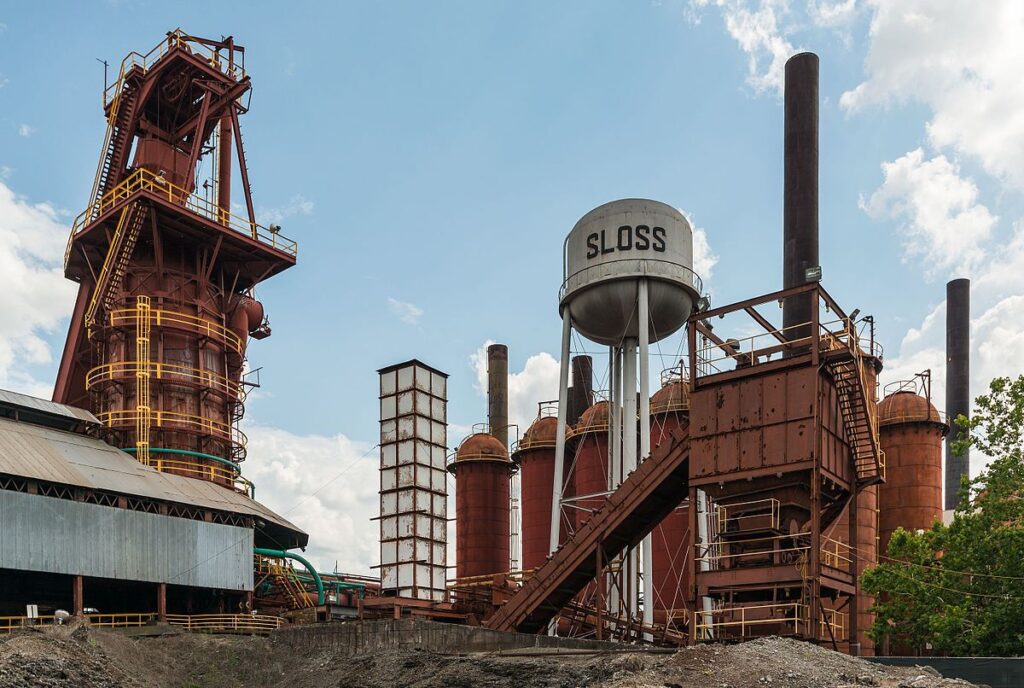
Ty Malugani – Education Coordinator for Sloss Furnaces National Historic Landmark, tyler.malugani@birminghamal.gov
1) What led you to the job you have now?
I have always been interested in history and I came to Birmingham to get my degree at UAB. I had never really been here before, so I started visiting sites around the city including Sloss and I just fell in love with the place. During my, I think my Junior year, I did an internship at Sloss and started giving tours and getting to know the site. I then volunteered, and then did another internship during the master’s program, and then volunteered again. When the job opened up, I just sort of jumped at it.
2) Did you always want to do public history over academic history?
That’s a good question. No, I didn’t know at all. It was one of those things, where I grew up going to museums and I loved it. Throughout school, I wanted to be a high school history teacher because I thought of all the terrible history teachers I had. Then I got to UAB and through teaching as a TA and just being there I thought maybe being a college professor, but after experiencing public history I saw that I could teach kids, but not all the time. I could teach and be involved in other things. Public history could give me bits of everything I liked. So, not until my master’s did I sort of buy into this idea of public history.
3) What is your favorite project you’ve done at any site you’ve worked at?
As weird as it sounds, and I know it’s weird, but probably cataloging all of the Birmingham postcards at the Vulcan. That is where I found that I liked working with artifacts and touching the history. Also at Oak Hill I got to develop the accession system and worked on accessing the books, which hadn’t been done there yet. For Sloss, I currently am working on developing virtual tours and stuff like that and it’s really, really fun. But, the Vulcan project is one of my favorites when I think about it. I found I lived developing systems and being hands on and organizing stuff even if it’s a lot of just sitting on a computer and entering data. It can be pretty fulfilling. I thought of the night tours at Sloss, too, but those can get pretty corny, so yeah, I think just the cataloging.
4) What are the pros and cons of your job?
As far as the pros go, to me, like I said, I really like being able to teach, but not all the time. I get to work on other things. I get to have my hands in all kinds of things, teaching kids, developing programs, continuing research, handling artifacts. To me, working in a museum is basically like being able to do what I think is the full scope of history, which is all of those things. There is also the constant challenge of having to figure out how to best portray information to the public, but this is also a con. The public has to understand on their own, without me there to explain to them, what I am trying to get across. And of course, that Sloss isn’t just a haunted place. It’s a museum with real history. Also when I come up with programs, there has to be funding and especially now that’s even more difficult with a tight budget. I have to figure out how to make programs cost effective. Oh, and with teaching you get breaks, with museums, especially when I am working on a new project, I get calls constantly, so It becomes pretty time consuming.
5) What advice would you give to someone who wants to get into public history?
Volunteer, intern, volunteer, intern, volunteer. You have to get your foot in the door. It’s somewhat unfortunate, but museums require so much experience to get a job, so you have to get to these places and make yourself known. In Birmingham, I wanted a job so I spent time at all the sites volunteering. You also need to network, when you put that application in for a job, you want them to already know who you are. You have to put yourself out there. This is what worked for me.
What a great interview! I think his point about the hands on nature of the work is particularly good. What other people might think of as tedious is one of the parts he seems to most enjoy: a good lesson in undermining the romance often attached to the work.